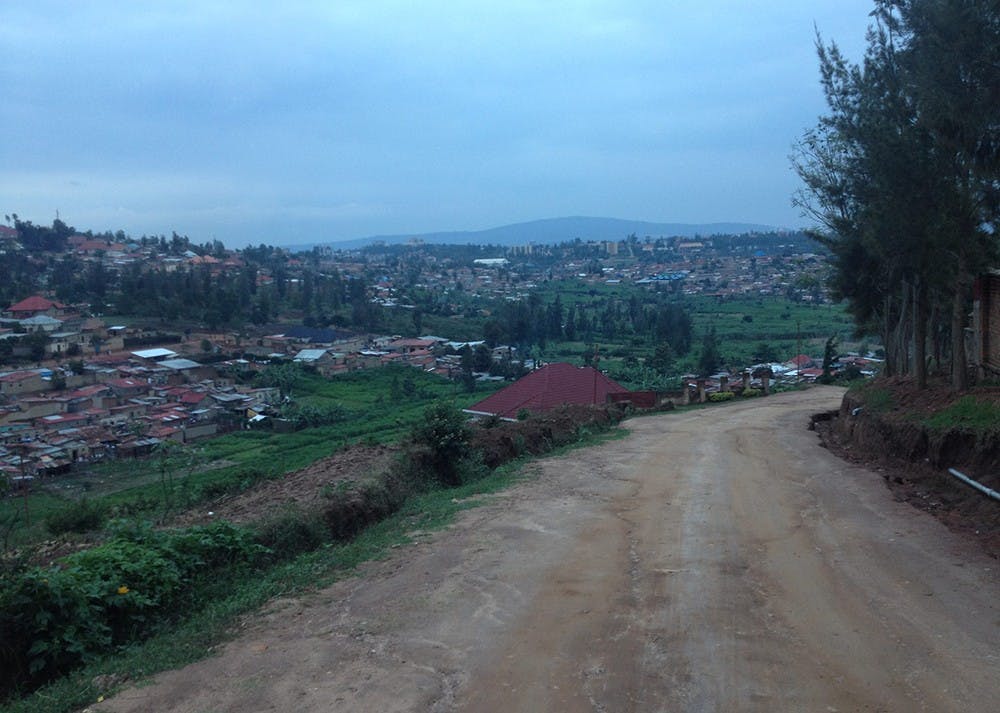I love rain.
Gray skies make you stop for a second to rethink your day.
In my case I have to bring an umbrella or wear sturdier shoes.
It’s not often that we get to take a pause, even a brief one, while we wait inside for the rain to let up or to decide to make an extra cup of coffee to warm your damp skin.
Here, I sometimes feel differently about the rain, especially when I’m forced to walk up a muddy hill with it pelting me despite having an umbrella.
Rain in Kigali is like snow in the Midwest. It happens often, and yet when it does everyone seems totally unprepared for it.
Plans are canceled.
People run across the street holding bags over their heads.
People wrap themselves with scarves, a sweatshirt, in my case, and drink hot tea.
The rain sometimes brings in cold weather unusual for this typically warm place.
Welcome to the rainy season in Rwanda.
No one in Kigali has air conditioning, but the houses are configured to always let in air and outside noise through screened windows and cracks under the doors.
The pattering sounds of rain come clearly through these openings.
Sometimes it’s gentle and sometimes it’s a roaring downpour that makes you wonder if there’s actually a hurricane outside.
When it rains in the United States, you’re usually insulated in your house or car or rushing through it. You don’t get the full extent of what rain sounds like, I’ve discovered, especially a heavy downpour.
In Kigali, you know exactly what rain sounds like when it hits the earth.
Of course, sometimes my romantic views give way to practicality. I can become bitter about the constant wetness and the mud on my clothes.
The other day, my friend and I were waiting at the bus stop, which is especially busy on rainy days, and those bitter feelings caught up to us.
I should point out that although public transport in Rwanda is better off than a few years ago, there’s definite room for more ?organization.
There are, for instance, bus numbers and designated signs to your destination. The problem is that drivers are not always inclined to use them.
What’s more, lines at bus stops are usually more like clumps, and getting on often involves a bit of pushing and shoving.
On this day, it was even worse. My friend and I, damp and grouchy, had already missed three buses to some larger and more assertive Rwandans. It was getting old.
Luckily, we had an ally in the bus station attendant.
Even on the grayest of days, he’s highly visible in a neon vest and a slightly outrageous rainbow-striped floppy hat.
He’s hard to miss. I think he felt especially sorry for us, given that we were clearly foreigners having a frustrating and damp evening.
When we did finally make it on, he clapped and cheered, getting a few others to join in.
We gave him a thumbs up in triumph through the foggy window.
Just another rainy day in Kigali.





